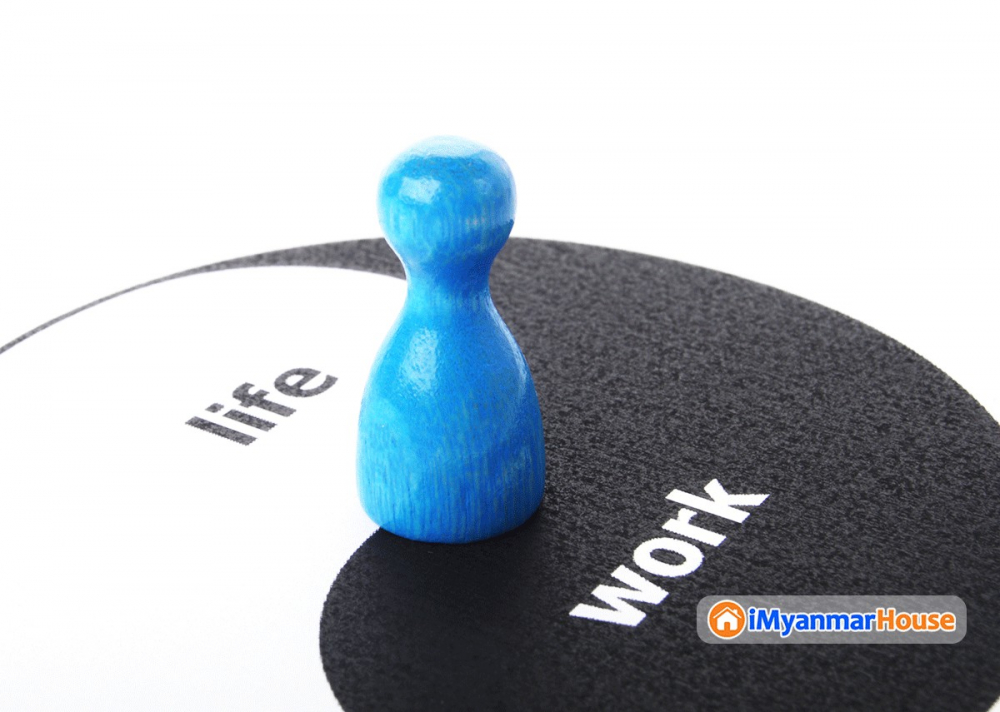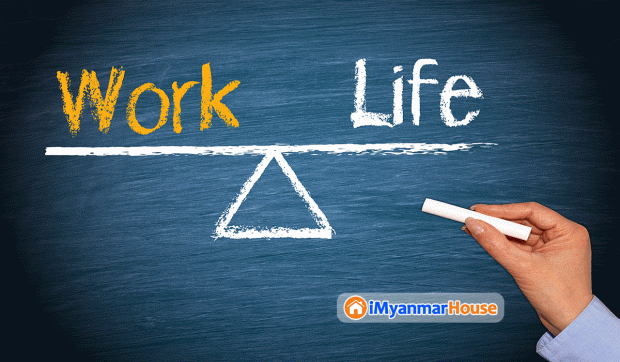
Knowledge | Posted by Shwe Zin Win
Feeling tired from work is common and can be caused by many different factors. Fortunately, there are several steps you can take to reduce fatigue and maintain a healthy work-life balance.
Work can wear you out, whether your job requires physical labor or not. There’s more than one way to feel tired, and the daily demands of your job can leave you physically and emotionally weary, even if you spend your days behind a desk.
Other stressors — such as relationship issues, financial worries, or health concerns — can intensify the strain. And then there’s COVID-19.
If you’re still going in to work, you might find that you feel extra-exhausted from the added stress of worrying about potential exposure to the new coronavirus on the job.
If you now work from home, you might feel slightly safer — at the cost of greater pressure to blur the boundaries between work and home.
Long story short, it’s all too common to feel tired from working, especially during times of crisis and difficulty. You may not be able to quit your job completely, but you don’t have to watch your energy reserves slowly dwindle away, either.
How to spot work fatigue
There are several ways to recognize burnout.
A few of the most common symptoms of work fatigue includeTrusted Source:
feeling depleted or exhausted
having negative, pessimistic, or cynical feelings about your job finding it difficult to complete tasks or be productive feeling less confident about your work If you experience any of the symptoms listed above, it may be time to start identifying any factors that may contribute to your fatigue and consider making changes to your routine maintain a healthy work-life balance.
Identify changes you can make yourself
If work has you feeling a little more exhausted than usual, a good first step might involve taking a look at any habits potentially contributing to your fatigue.
Maybe you feel too worn out after your shift to do anything except relax in your favorite chair with your phone. You regularly stay up late to give yourself more time to relax, but you find it hard to drift off when you finally make it to bed.
Even though you want to get out for a hike, see your friends (safely!), and make time for meal planning and cooking, you just can’t seem to find the energy.
Small changes can be key to reducing fatigue and preventing burnout, including: eating a variety of balanced and nutritious meals getting enough sleep each night practicing stress-relieving techniques like yoga, meditation, or journaling Regular exercise can also make a differenceTrusted Source, as backward as this might sound. If you aren’t up for a full workout, no problem. Even a brisk walk around the block can help boost your energy levels and mood.
Leave work at work
You might feel more informed and prepared to deal with challenges when you leave work devices on throughout the evening and weekend or if you continue check your email after clocking out for the day.
When coworkers or customers know you can always be reached, however, it often becomes close to impossible to fully “leave” work, especially when you’re working from home. If you’re always on the clock, you’ll never find the time to recharge.
If you’re expected to handle work concerns outside of your scheduled hours, talk with your supervisor about setting some clear boundaries around times you aren’t available.
Perhaps your heavy workload often requires you to work late. Sometimes, this is just part of the territory.
But consider whether you tend to volunteer for extra work to keep others happy or avoid guilt trips. If so, polite refusals when you’re at capacity may serve you better in the future.
It’s also a good idea to discuss options for workplace support with your supervisor or human resources office. It’s tough to be productive when you feel drained or burned out.
When you show up rested and energized, on the other hand, everyone benefits.

Ask for help
When you have too many tasks to realistically complete without support, it never hurts to ask for help.
You might worry that requesting support suggests weakness or incapability, but remember: Your employer likely wants you to do the best job possible. They can’t support you in achieving that goal unless they know how you’re really doing.
Here are a few other tips:
Talk to your supervisor: When you have too much work to complete alone, an informed supervisor can help by reassigning certain tasks or finding a coworker who can assist you. Avoid taking on responsibilities you can’t handle: Accepting extra work may seem like a good way to earn respect and positive regard, but this won’t do you any favors if it leaves you exhausted and miserable.
Stay present: It’s important to make an effort to avoid letting your usual responsibilities slide and avoid checking out at work, even when you feel tired or bored. Knowing you did your best can promote a sense of accomplishment and leave you more motivated.
Spend your free time on rewarding hobbies After a long workday, you might lack the energy for anything beyond a night of Netflix. Still, challenge yourself to do something different from time to time, particularly when you feel the most drained.
Watching TV or playing video games might feel relaxing, and there’s nothing at all wrong with catching up on a show or two. Yet more purposeful hobbies can often feel more rewarding and leave you with a sense of deeper satisfaction.
To feel more rejuvenated by your time off, consider starting a garden, picking up a book, or doing one thing to improve your living area every day.
Make a self-care plan
Prioritizing physical and emotional needs is an important part of creating balance between your work and personal life.
Taking good care of yourself can improve resilience and strength, making it easier to manage challenges as they come up.
When you feel physically and emotionally sound, it usually becomes easier to maintain a positive outlook and fend off the feelings of irritability, hopelessness, and pessimism that often accompany persistent exhaustion and stress.
While getting enough sleep and eating well do have an impact, self-care goes beyond these basic needs.
Break up the monotony
Just as repetitive tasks can lead to yawning and zoning out, an easy but monotonous workday can leave you feeling drained and mentally numb. Changing up your typical routine can make a big difference.
Evaluate options for the future
You’ve taken steps to address your tiredness, but workplace circumstances continue to drain you, and your employer has been less than supportive of efforts to create change. What next?
It may be time to consider another job or career, one that allows you to maintainTrusted Source a healthy work-life balance. Without this essential balance, the situation will likely only get worse.
You might find it hard to “show up” mentally even when you’re physically present, and you may take little pride in your work. Your emotional well-being and relationships with family and friends may bear the burden of your exhaustion, too.
Ref: Drained from Work? 9 Ways to Restore Your Work-Life Balance (Healthline.com)









